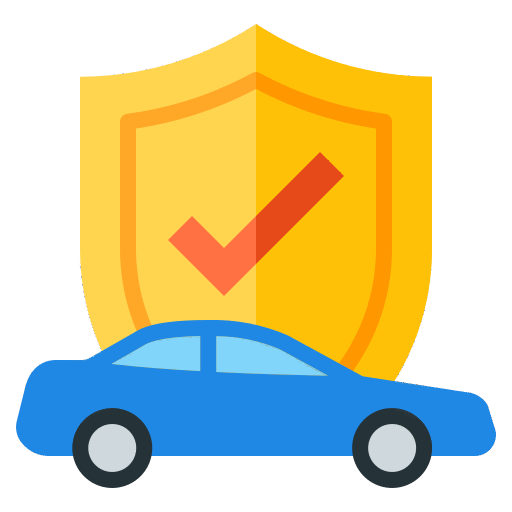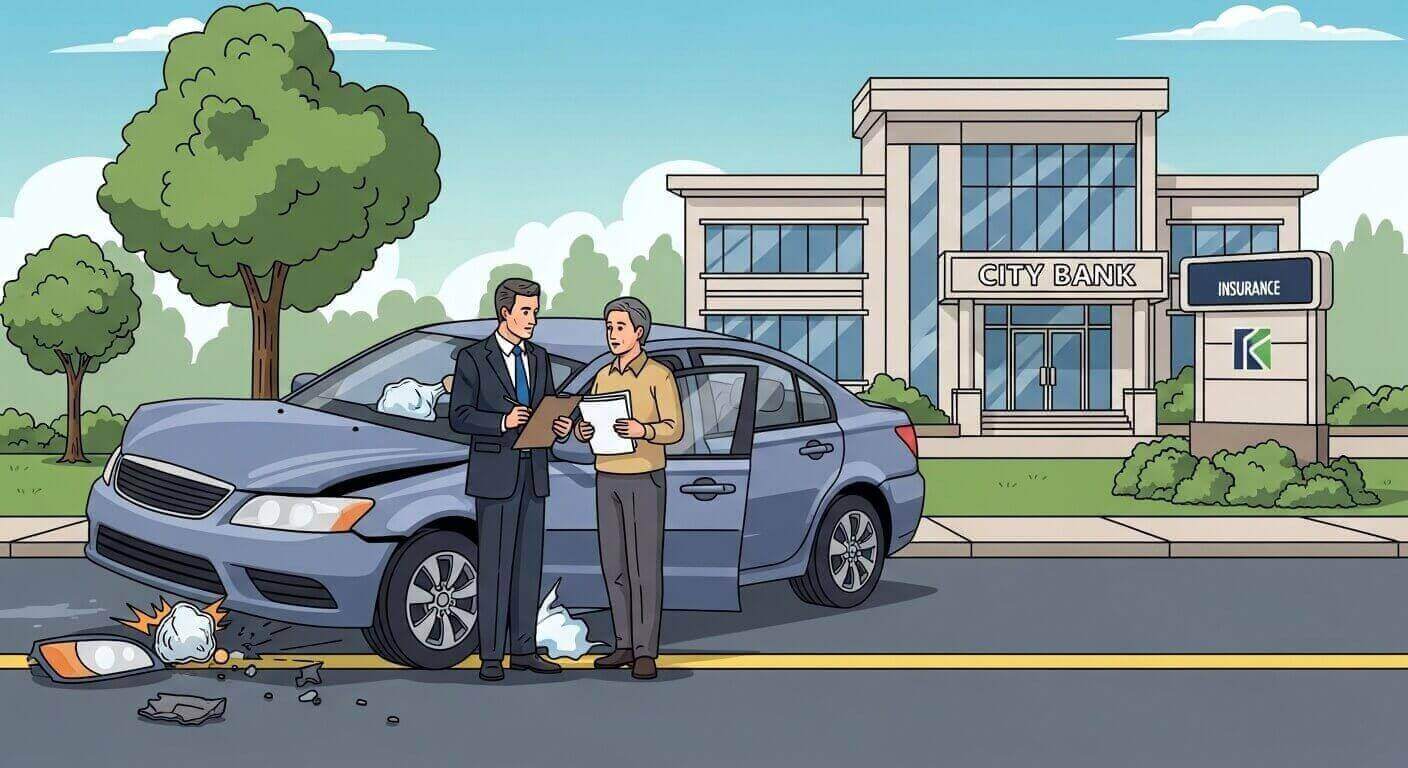The sound of screeching tires followed by the crunch of metal is a moment no driver ever wants to experience. The immediate aftermath is a blur of adrenaline, safety checks, and exchanging information. But once the dust settles, a new wave of questions begins, especially if you’re still making payments on your vehicle. You might be wondering, what happens if you crash a financed car with insurance?
Navigating an accident is stressful enough, but adding a car loan into the mix introduces another layer of complexity. Who gets the insurance check? What if the car is declared a total loss? And what happens if you owe more on the loan than the car is worth?
This guide will provide clear answers to these critical questions. We’ll break down the entire process, from the initial insurance claim to settling up with your lender. By understanding how insurance, financing, and total loss valuations interact, you can face this challenging situation with confidence and clarity.
You may also like: Should I Accept First Offer From Insurance Company for Car?
The Immediate Aftermath: Insurance and Your Lender
When you crash a financed car, two key parties are involved besides you: your insurance company and your lender. Your auto loan agreement requires you to maintain specific insurance coverage because the lender has a financial stake in the vehicle until the loan is paid off. They are listed as the “lienholder” on your policy.
Full Coverage for a Financed Car
Lenders almost universally require you to carry both collision and comprehensive coverage, often referred to as full coverage for a financed car. This is one of the most important car insurance requirements for financed vehicles.
- Collision Coverage: Pays for damage to your car resulting from a collision with another object (like a car, pole, or guardrail), regardless of who is at fault.
- Comprehensive Coverage: Pays for damage to your car from non-collision events, such as theft, vandalism, fire, or natural disasters.
This coverage protects the lender’s asset—your car. If you have the required insurance, the process for a repairable vehicle is straightforward. You file a claim, pay your deductible, and the insurance company pays the body shop to fix your car. You continue making your loan payments as usual.
The Dangers of Having a Financed Car with No Insurance
What if you let your coverage lapse? What happens if you cancel insurance on a financed car and then have an accident? This scenario can have severe financial consequences.
If you have a financed car no insurance, you are in breach of your loan agreement. The lender can repossess the vehicle, and you will be personally responsible for paying for all repairs or the entire remaining loan balance if it’s a total loss. Driving without state-mandated liability insurance also comes with legal penalties, including fines and license suspension.
What Happens If You Total a Financed Car?
The situation becomes more complicated when the damage is severe enough for the insurer to declare the car a “total loss.” This happens when the cost of repairs plus the car’s salvage value exceeds its Actual Cash Value (ACV) before the accident. So, if you total a financed car, what happens next?
How Insurers Determine a Total Loss Valuation
The insurance adjuster will perform a total loss valuation to determine your car’s ACV. This isn’t what you paid for the car; it’s what the car was worth the moment before the crash. They use various tools and data, including:
- The car’s year, make, model, and mileage.
- The overall condition, including any prior damage.
- Recent sales data for comparable vehicles in your local market.
- Valuation guides from companies like NADA or Kelley Blue Book.
You can and should perform your own research to ensure the insurer’s total loss valuation is fair. Our guide on total loss settlement negotiation can help you through this process.
The Payout Process: Insurance, Lender, and You
Once the ACV is determined, the insurance payout process begins. Because your lender is the lienholder, the check from the insurance company is typically made out to both you and the lender, or sent directly to the lender.
The lender will apply the insurance payout to your outstanding loan balance. The next steps depend on whether you are “right side up” or “upside down” on your loan.
“If My Car Is Totaled and I Still Owe Money” – Understanding the Gap
This is one of the most stressful outcomes of a total loss. Being “upside down” or “underwater” on a car loan means you owe more to the lender than the car’s ACV.
Example Scenario:
- You owe $18,000 on your car loan.
- Your car’s ACV is determined to be $15,000.
- Your collision deductible is $1,000.
The insurance company will pay $14,000 (ACV minus your deductible) to your lender. The lender applies this to your loan, but you still have a remaining balance of $4,000 ($18,000 – $14,000). You are legally obligated to pay this remaining $4,000 for a car you no longer own. This is the “gap.”
What is Gap Insurance?
This is precisely where Guaranteed Asset Protection (GAP) insurance helps. If you have GAP insurance, it will cover the difference between the insurance payout and your remaining loan balance. In the example above, GAP insurance would pay the $4,000, leaving you with no further debt.
If you don’t have GAP insurance, you are responsible for paying that $4,000 out of pocket. It is not possible to refinance a totaled car loan; the debt must be settled.
What Happens If You Wreck a Financed Car Without Full Insurance?
Some people make the mistake of only carrying liability insurance on a financed vehicle. Liability only covers damage you cause to others—it does not cover your own car.
If your car is totaled with no insurance (meaning no collision coverage), the situation is dire. You receive no payout from your insurance company for your vehicle. You are still responsible for the entire remaining balance of your car loan. On top of that, you will have breached your loan agreement, and the lender may demand immediate repayment of the full loan. This is why understanding insurance requirements for a financed car is so critical.
Salvage and Ownership: If Insurance Totals Your Car, Can You Keep It?
Many people ask, “if my car is written off can I keep it?” The answer is often yes, but it involves a process called “owner retention.”
When a car is declared a total loss, it is typically given a salvage title. The insurance company technically takes ownership, pays you the ACV, and then sells the wrecked car at a salvage auction to recoup some of its costs.
How Does Salvage Value Work?
The salvage value of a totaled car is the estimated amount the insurer can get by selling the wrecked vehicle for parts or scrap. A total loss vehicle appraisal will determine both the ACV and the salvage value of the vehicle.
If you want to keep your totaled car, you can inform the insurance company. They will then deduct the car’s salvage value from your settlement check.
Example of Owner Retention:
- Your car’s ACV is $15,000.
- Your deductible is $1,000.
- The salvage value is determined to be $2,500.
Instead of paying you $14,000 and taking the car, the insurer will pay you $11,500 ($15,000 ACV – $1,000 Deductible – $2,500 Salvage Value), and you get to keep the car.
Considerations Before Keeping a Salvage Vehicle
Before you decide to keep the car, consider these factors:
- Loan Obligations: Your lender must approve. Since the car is their collateral, they may not allow you to keep a wrecked vehicle and may demand the full insurance payout.
- Title and Registration: The car will have a salvage title, making it illegal to drive on public roads until it is repaired and passes a state inspection to receive a “rebuilt” title.
- Insurance: Getting insurance for a rebuilt vehicle can be difficult and expensive.
Frequently Asked Questions (FAQ)
What happens if you crash a financed car?
If you have the required full coverage insurance, you file a claim. For repairs, the insurance pays the shop after your deductible. If it’s a total loss, the insurance company pays the lender the car’s Actual Cash Value (ACV). You are responsible for any remaining loan balance.
Can I keep my car if insurance totals it?
Often, yes. This is called “owner retention.” You would receive a settlement check for the car’s ACV minus your deductible and its salvage value. You must get approval from your lender, and the car will receive a salvage title, requiring significant repairs and inspection before it can be legally driven.
What happens if my car is totaled but I still owe money?
If you owe more on your loan than the insurance payout, you are responsible for paying the difference (the “gap”) to the lender. GAP insurance is designed to cover this specific amount. Without it, you must pay the balance out of pocket.
How is salvage value calculated for a totaled car?
An insurance adjuster estimates the salvage value by assessing what the wrecked car could be sold for at a salvage auction. The calculation is based on the vehicle’s year, make, model, the extent of the damage, and demand for its parts.
Navigating Your Next Steps
Crashing a financed car is a complicated and stressful event. The most important thing you can do is ensure you have the proper insurance coverage from the start. Always carry collision, comprehensive, and strongly consider GAP insurance to protect yourself financially.
If you find yourself in this situation, communicate clearly with both your insurer and your lender. Understand your policy, get a fair total loss valuation, and know your options regarding salvage. For more guidance, review our car insurance claims tips and total loss car guide.

